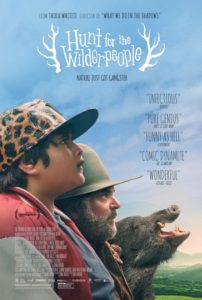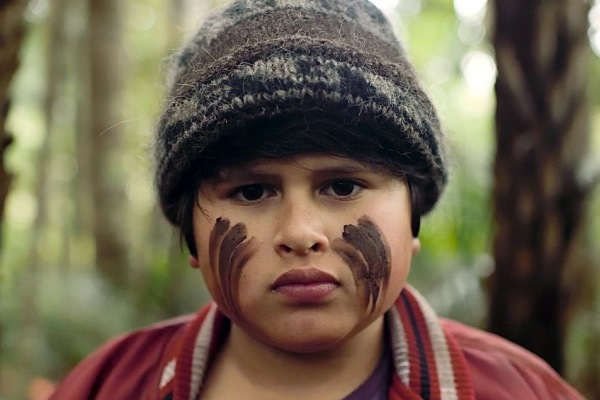Hunt for the Wilderpeople is an uplifting, gruff New Zealander film about family love. Ricky (Julian Dennison) comes from foster care to the home of Hec (Sam Neill) and his wife, Bella (Rima Te Wiata). Hec and Ricky stay away from each other initially, largely due to how similar they are. Both prefer nature and solitude to city life and small talk, and so they vet each other cautiously. Ricky tries to befriend Hec because he lacks an adult male figure who might care for him and seems interesting, while Hec does not want to be responsible for Ricky’s well-being nor how he occupies himself on their farm; this is all Bella’s job.

Hec is heart-jerking at times, suppressing his emotional undercurrent, and a combination of Jeff Bridges’ begrudging hero in True Grit (2010) and Jack Nicholson’s hidden softie in As Good As It Gets (1997). He hides his vulnerabilities beneath a mean exterior and tells Ricky what he wants most is to be left alone. As the film continues, he reveals a quiet passion and devotion to his wife. Scenes of his sketching Bella and the three of them are wonderful bites of hope, giving rushes of love to a film that experiences tragedy we do not see in its trailer. The story moves from a space of weird family dynamic to two guys discovering companionship and eventually forming a bond that is the basis of family.
The two of them become “the wilderpeople” when they flee the farm and grow so used to staying in the woods that they decide to make it a temporary home. They know they are “running,” which is the film’s way of saying that Ricky and Hec are learning about their true selves as they try to outrun others and connect through tough love. Ricky’s haikus, suggested as therapy, are a nice fine art balance to the nature-heaviness of the film. Although the haikus are about inflicting pain upon others, as with most things Ricky does, he is always a second away from a smile or doing something nice for someone. Hunt for the Wilderpeople does not concentrate on the pain Ricky has experienced as an abandoned child, which makes his acting out and sweetness more real. Hec has the same capacity to turn ugliness into something kind, and they slowly learn to trust that their generosity with each other can be both held and reciprocated.


| Producer: | Carthew Neal, Matt Noonan, and Leanne Saunders |
| Release Date: | June 24, 2016 (limited) and on July 15, 2016 at the Main Art Theatre in Royal Oak, Michigan |
| Starring: | Sam Neill, Julian Dennison, Rima Te Wiata, Rachel House, Tioreore Ngatai-Melbourne, Oscar Kightley, Stan Walker, Mike, Minogue, Cohen Halloway, and Rhys Darby |
| User Rating: | |
| Writer: | Taika Waititi |
| MPAA Rating: | PG-13 |
| Director: | Taika Waititi |
| Distributor: | The Orchard |
| External Info: | Official Site |
